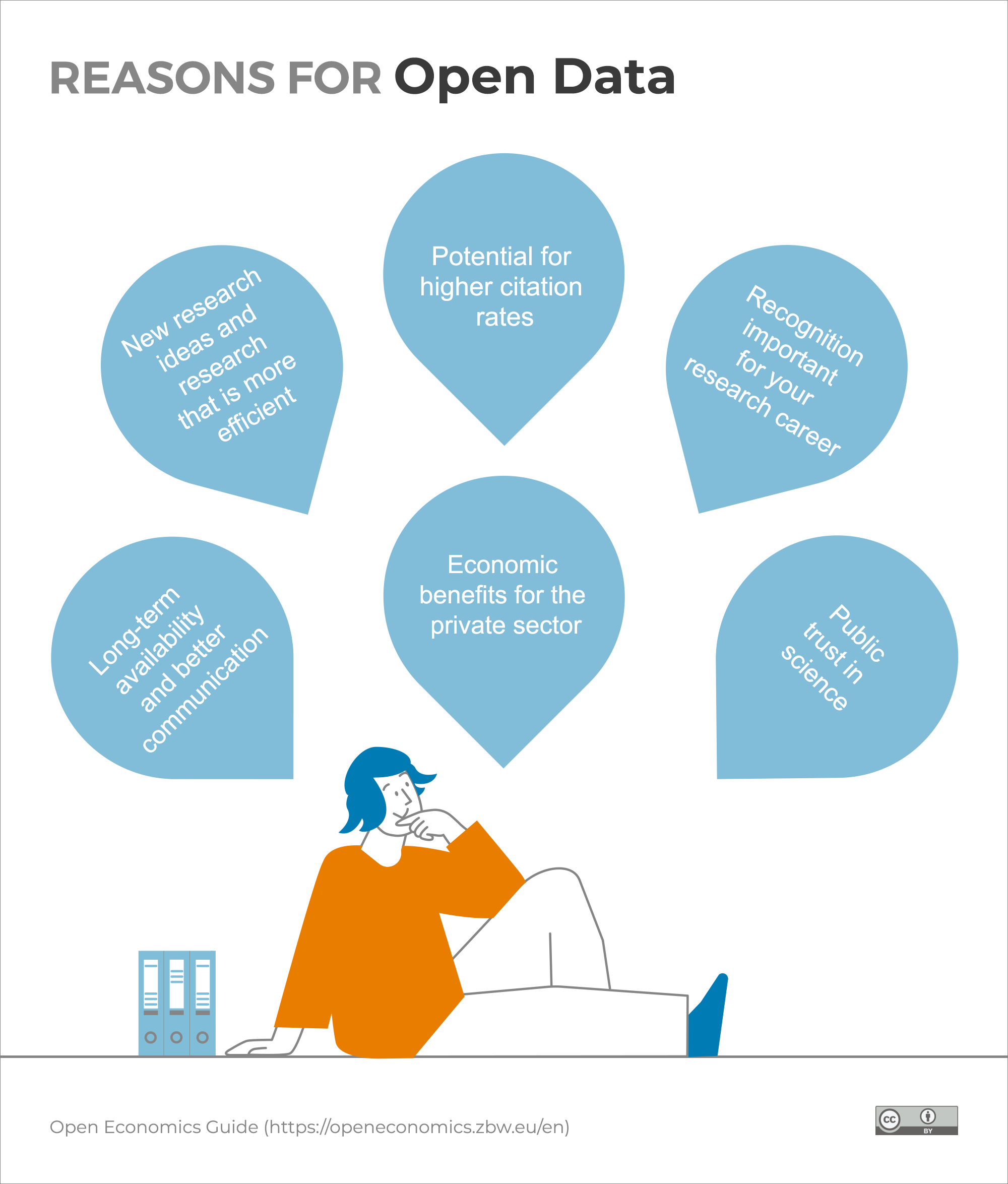Reasons for Open Data
The following reasons make the case for Open Data:
- Higher citation rates: Text publications for which data is made available may be perceived as more serious and be read and cited more frequently, but this is not clearly proven. In any case, the data itself can be cited based on an independent publication. In this respect, there is also the potential for more citations.
- Recognition important for your research career: If you practice Open Data, you improve the discoverability and visibility of your research and can thus more easily receive recognition for it. In addition, increased awareness of your research can more easily lead to new collaboration opportunities.
- New research ideas and research that is more efficient: When you repurpose existing data, you save time because you no longer have to collect the data yourself. Open Data also avoids duplication of effort and allows for secondary analysis. Comprehensive scientific evaluation of the data and its utilization (for example, in follow-up projects) is possible. In addition, the re-use may inspire you to conduct other analyses or a meta-analysis.
- Long-term availability and better communication: If you have published data in a suitable repository, it is usually ensured that your data are permanently stored securely and accessible. In addition, the data already has a comprehensive and understandable data structure and annotation due to the previous sharing. This can also be useful for you later on, for example, if you want to make further use of your data yourself. Second, you make it easier for reviewers, editors, and other researchers to understand your research. At the same time, it becomes easier to communicate your research.
- Economic benefits for the private sector: There is evidence of positive economic effects of open research results and of Open Data in particular. Here, research data takes on a central role. The private sector benefits from easier access to information and more opportunities for collaboration, and in return can develop new services and business models.
- Public trust in science: Open Data promotes trust in research by improving the verifiability of the reproduction and robustness of research results.
